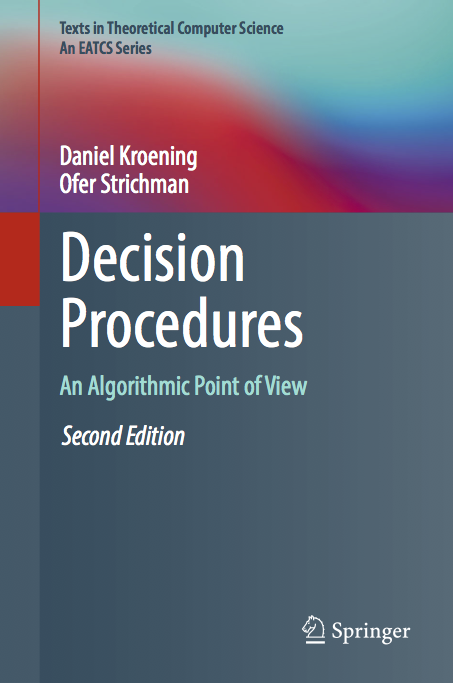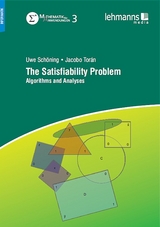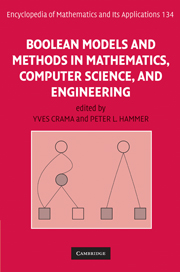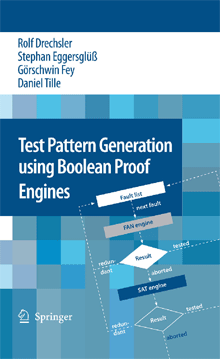13th Int. Conf. on Logic Programming and Non-monotonic Reasoning
Call for Papers
13th International Conference on
Logic Programming and Non-monotonic Reasoning
LPNMR 2015
Lexington, KY, USA
September 27-30, 2015
(Collocated with the 4th Conference on Algorithmic Decision Theory 2015)
AIMS AND SCOPE
LPNMR 2015 is the thirteenth in the series of international meetings on logic programming and non-monotonic reasoning. LPNMR is a forum for exchanging ideas on declarative logic programming, non-monotonic reasoning, and knowledge representation. The aim of the conference is to facilitate interactions between researchers and practitioners interested in the design and implementation of logic-based programming languages and database systems, and those working in knowledge representation and nonmonotonic reasoning. LPNMR strives to encompass theoretical and experimental studies that have led or will lead to the construction of systems for declarative programming and knowledge representation, as well as their use in practical applications. This edition of LPNMR will feature several workshops, a special session dedicated to the 6th ASP Systems Competition, and will be collocated with the 4th Algorithmic Decision Theory Conference, ADT 2015. Joint LPNMR-ADT Doctoral Consortium will be a part of the program.
Authors are invited to submit papers presenting original and unpublished research on all aspects of non-monotonic approaches in logic programming and knowledge representation. We invite submissions of both long and short papers.
TOPICS
Conference topics include, but are not limited to:
- Foundations of LPNMR Systems:
- Semantics of new and existing languages;
- Action languages, causality;
- Relationships among formalisms;
- Complexity and expressive power;
- Inference algorithms and heuristics for LPNMR systems;
- Extensions of traditional LPNMR languages such as new logical connectives or new inference capabilities;
- Updates, revision, and other operations on LPNMR systems;
- Uncertainty in LPNMR systems.
- Implementation of LPNMR systems:
- System descriptions, comparisons, evaluations;
- Algorithms and novel techniques for efficient evaluation;
- LPNMR benchmarks.
- Applications of LPNMR:
- Use of LPNMR in formalization of Commonsense Reasoning and other areas of KR;
- LPNMR languages and algorithms in planning, diagnosis, argumentation, reasoning with preferences, decision making and policies;
- Applications of LPNMR languages in data integration and exchange systems, software engineering and model checking;
- Applications of LPNMR to linguistics, psychology, and other sciences
- Integration of LPNMR systems with other computational paradigms;
- Embedded LPNMR: Systems using LPNMR subsystems.
SUBMISSION
LPNMR 2015 welcomes submissions of long papers (13 pages) or short papers (6 pages) in the following categories:
- Technical papers
- System descriptions
- Application descriptions
The indicated number of pages includes title page, references and figures. All submissions will be peer-reviewed and accepted papers will appear in the conference proceedings published in the Springer-Verlag Lecture Notes in Artificial Intelligence (LNAI/LNCS) series. At least one author of each accepted paper is expected to register for the conference to present the work. Submissions must be formatted according to the Springer LNCS author instructions, must be written in English, and present original research. Paper submission will be electronic through the LPNMR-15 Easychair site.
Two best papers of general AI interest will be invited for rapid publication in the journal Artificial Intelligence - Journal - Elsevier. Two best papers with narrower logic programming focus will be invited for a rapid publication in the journal Theory and Practice of Logic Programming.
MULTIPLE SUBMISSION POLICY
LPNMR 2015 will not accept any paper which, at the time of submission, is under review or has already been published or accepted for publication in a journal or another conference. Authors are also required not to submit their papers elsewhere during LPNMR’s review period. However, these restrictions do not apply to previous workshops with a limited audience and without archival proceedings.
ASSOCIATED EVENTS
WORKSHOPS - LPNMR 2015 will include specialized workshops to be held on September 27 prior to the main conference. Currently planned workshops include:
-
Grounding, Transforming, and Modularizing Theories with Variables Organizers: Marc Denecker, Tomi Janhunen Website
-
Action Languages, Process Modeling, and Policy Reasoning Organizer: Joohyung Lee Website
-
Natural Language Processing and Automated Reasoning Organizers: Marcello Balduccini, Ekaterina Ovchinnikova, Peter Schueller Website
-
Learning and Nonmonotonic Reasoning Organizers: Alessandra Russo and Alessandra Mileo Website
ASP COMPETITION - A special session dedicated to a discussion of the 6th ASP System Competition, including the methodology of the competition, benchmarks used, lessons learned and, most importantly, the results and the announcement of the winners.
ALGORITHMIC DECISION THEORY (ADT) 2015 (collocated - same time and place) Algorithmic Decision Theory is a vibrant and growing area of research concerned with algorithmic aspects of problems arising in social choice and economics that involve optimal ways to aggregate preferences. The area abounds in hard computational problems and may be an axciting area of applications for ASP. The two conferences will seek ways to identify and promote synergies between their respective areas of focus.
JOINT LPNMR-ADT DOCTORAL CONSORTIUM:
co-Chairs:
- Esra Erdem (LPNMR), Sabanci University, Turkey
- Nick Mattei (ADT), NICTA, Australia
More information on the event website
IMPORTANT DATES (TENTATIVE)
- Paper registration: April 13, 2015
- Paper submission: April 20, 2015
- Notification: June 1, 2015
- Final versions due: June 15, 2015
VENUE
Lexington is a medium size, pleasant and quiet university town. It is located in the heart of the so-called Bluegrass Region in Central Kentucky. The city is surrounded by beautiful horse farms on green pastures dotted with ponds and traditional architecture stables, and small race tracks, and bordered by white or black fences. The Horse Museum is as beautifully located as it is interesting. Overall, the city has a nice feel that mixes well old and new. The conference will be held in the Hilton Lexington Downtown hotel.
GENERAL CHAIR
Victor Marek, University of Kentucky, KY, USA
PROGRAM CHAIRS
Giovambattista Ianni, University of Calabria, Italy Mirek Truszczynski, University of Kentucky, KY, USA
WORKSHOPS CHAIR
Yuliya Lierler, University of Nebrska at Omaha, NE, USA
PUBLICITY CHAIR
Francesco Calimeri, University of Calabria, Italy
PROGRAM COMMITTEE
- Agostino Dovier, Università di Udine, Italy
- Agustín Valverde, Universidad de Màlaga, Spain
- Alessandra Mileo, National University of Ireland, Galway, INSIGHT Centre for Data Analytics, Ireland
- Andrea Formisano, Dip. di Matematica e Informatica, Università di Perugia, Italy
- Axel Polleres, Vienna University of Economics and Business, Austria
- Bart Bogaerts, Department of Computer Science, KU Leuven, Belgium
- Chiaki Sakama, Wakayama University, Japan
- Chitta Baral, Arizona State University, USA
- Christoph Redl, Vienna University of Technology, Austria
- Daniela Inclezan, Miami University, USA
- David Pearce, Universidad Politécnica de Madrid, Spain
- Emilia Oikarinen, Aalto University, Finland
- Enrico Pontelli, New Mexico State University, USA
- Esra Erdem, Sabanci University, Istanbul, Turkey
- Eugenia Ternovska, Simon Fraser University, Canada
- Fangkai Yang, Schlumberger Ltd
- Fangzhen Lin, Hong Kong University of Science and Technology, Hong Kong
- Francesco Calimeri, Università della Calabria, Italy
- Gerhard Brewka, Leipzig University, Germany
- Giovanni Grasso, Oxford University, UK
- Hannes Strass, Leipzig University, Germany
- Hans Tompits, Vienna University of Technology, Austria
- James Delgrande, Simon Fraser University, Canada
- Jia-Huai You, University of Alberta, Canada
- Joohyung Lee, Arizona State University, USA
- Jose Julio Alferes, Universidade Nova de Lisboa, Portugal
- Kewen Wang, Griffith University, Australia
- Marc Denecker, K.U.Leuven, Belgium
- Marcello Balduccini, Drexel University, USA
- Marina De Vos, University of Bath, UK
- Martin Gebser, University of Potsdam, Germany
- Matthias Knorr, CENTRIA, Universidade Nova de Lisboa, Portugal
- Mauricio Osorio, Fundacion de la Universidad de las Americas, Puebla, Mexico
- Michael Fink, Vienna University of Technology, Austria
- Michael Gelfond, Texas Tech University, USA
- Orkunt Sabuncu, University of Potsdam, Germany
- Paul Fodor, Stony Brook University, USA
- Pedro Cabalar, University of Corunna, Spain
- Saadat Anwar, Arizona State University, USA
- Stefan Woltran, Vienna University of Technology
- Stefania Costantini, Dipartimento di Ingegneria e Scienze dell’Informazione, e Matematica, Univ. di L’Aquila, Italy
- Terrance Swift, CENTRIA, Universidade Nova de Lisboa, Portugal
- Thomas Eiter, Vienna University of Technology, Austria
- Tomi Janhunen, Aalto University, Finland
- Torsten Schaub, University of Potsdam, Germany
- Tran Cao Son, New Mexico State University, USA
- Vladimir Lifschitz, University of Texas at Austin, USA
- Wolfgang Faber, University of Huddersfield, UK
- Yi Zhou, University of Western Sydney, Australia
- Yisong Wang, Guizhou University, China
- Yuliya Lierler, University of Nebraska at Omaha, USA
CONTACT
lpnmr2015@mat.unical.it










